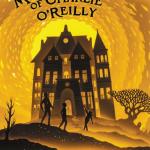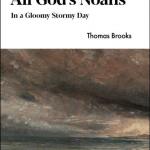This post is part of a series walking through the second volume of Abraham Kuyper’s Common Grace
Kuyper begins with a recap of what he’s covered so far:
“As we have seen, we find in creation the explanation for two facts related to suffering. On the one hand, suffering is a necessity and flows from the will of God; on the other hand, suffering is nevertheless something that stands in enmity to God and consequently is combated by God himself and must therefore also be combated by us. Creation called into existence forces and powers that flourish for good only to the extent that they move along the path of God’s ordinances. They necessarily turn into destructive and ruinous powers as soon as they deviate from the path of those ordinances.” (566)
Continuing the use of train imagery, derailment “must end in misery.” So too our lives end in misery when they derail. (266-267)
Yet here the train imagery starts to break down–a train follows human rules and external laws of physics. God is under no such physical constraints. Yes, God could have created differently, but He didn’t so His will is at work. Indeed we should be grateful for the misery of derailment–lest something worse had happened and hell on earth been the result. This was/is tied to God’s being: His honor and our salvation.
What’s more: this derailment was done by the man “intentionally… consciously and purposely.” (568) Albeit with the goal of greater “speed” rather than misery. Self-reproach, guilt, and punishment all followed–as was God’s intent and contrary to what the feel-good theologians say about God. Our guilt from sin and sense of wrath were put in our nature by God. So God wills all this.
This leads to the question of whether God willed misery when He created? No. He created with a destination and goal for creation. Derailment was not that goal, even though it was accounted for in creation. So both “flow from that one act of creation.” (570-571) Compassion and justice are are a unity in God, not a tension. We see this in the mercy and judgment on Sodom (even if God knew there were no righteous people there, we should still learn from Abraham’s intersession). So God both will and resists destruction.
Dr. Coyle Neal is co-host of the City of Man Podcast an Amazon Associate (which is sometimes linked in this blog), and an Associate Professor of Political Science at Southwest Baptist University in Bolivar, MO













